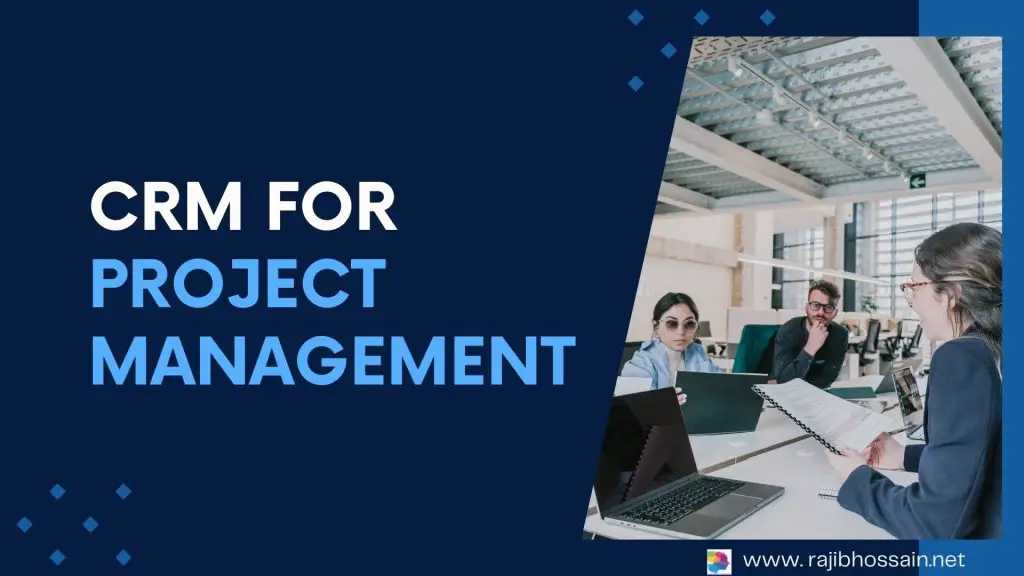
Project management involves juggling numerous tasks, deadlines, and team members. A robust Customer Relationship Management (CRM) system tailored for project management can significantly improve coordination, communication, and overall project success. This article explores the benefits of CRM for project management, essential features to consider, and answers common questions about implementing CRM in project management settings.
Why Project Managers Need CRM Systems
Project managers oversee complex projects that require detailed planning, constant communication, and effective resource management. CRM systems offer several advantages:
- Enhanced Coordination: Centralized information on project tasks, timelines, and team members.
- Improved Communication: Automated tools for sending project updates, task reminders, and team notifications.
- Operational Efficiency: Streamlining administrative tasks such as task assignment, progress tracking, and resource management.
- Data Analytics: Insights into project performance, task completion rates, and resource utilization to inform strategic decisions.
- Collaboration Tools: Features that facilitate team collaboration and communication.
- Personalized Reporting: Customizable reports to track project progress and performance metrics.
Essential Features of CRM for Project Management
When selecting a CRM system for project management, consider the following features:
- Task Management: Tools for creating, assigning, and tracking tasks.
- Timeline Management: Features for setting project timelines, deadlines, and milestones.
- Resource Management: Tools to manage and allocate resources efficiently.
- Communication Tools: Automated communication tools for sending updates, reminders, and notifications.
- Collaboration Tools: Features that facilitate team collaboration and document sharing.
- Analytics and Reporting: Detailed reports on project performance, task completion rates, and resource utilization.
- Integration: Compatibility with other project management tools such as time tracking and document management systems.
- Customization: Ability to tailor the CRM to meet the specific needs of the project.
- Mobile Access: Access to CRM data on the go through mobile apps.
- Security: Robust security features to protect sensitive project information.
Top CRM Systems for Project Management
Here are some of the best CRM systems tailored for project management:
- Monday.com
- Features: Task management, timeline management, resource management, and collaboration tools.
- Pros: Highly customizable, user-friendly interface, strong collaboration features.
- Cons: Can be expensive for larger teams.
- Pricing: Starts at $8 per user per month.
- Asana
- Features: Task management, timeline management, communication tools, and reporting.
- Pros: User-friendly, integrates well with other tools, robust free plan.
- Cons: Limited advanced features in the free plan.
- Pricing: Free plan available; premium plans start at $10.99 per user per month.
- Trello
- Features: Task management, collaboration tools, timeline management, and integration.
- Pros: Simple and intuitive interface, strong collaboration features.
- Cons: Limited advanced project management features.
- Pricing: Free plan available; premium plans start at $5 per user per month.
- Wrike
- Features: Task management, timeline management, resource management, and analytics.
- Pros: Robust project management features, highly customizable.
- Cons: Steeper learning curve, higher cost.
- Pricing: Free plan available; premium plans start at $9.80 per user per month.
FAQs
Q1: Is a CRM system necessary for small project teams?
- A: While not essential, a CRM system can significantly improve coordination, communication, and operational efficiency, even for small teams.
Q2: How do CRMs ensure project data security?
- A: CRMs for project management are designed to comply with data protection regulations, featuring robust encryption, access controls, and regular security audits.
Q3: Can a CRM system integrate with existing project management tools?
- A: Many CRMs offer integration capabilities with popular project management tools such as time tracking and document management systems, ensuring seamless data transfer and workflow.
Q4: What are the initial steps to implement a CRM in a project management setting?
- A: Identify your project’s specific needs, choose a CRM that meets those needs, train team members on its use, and gradually integrate it into your daily operations.
Q5: How can CRM improve project management efficiency?
- A: CRM systems help track tasks, send automated reminders, and facilitate team collaboration, enhancing overall project efficiency and success.
Conclusion
Implementing a CRM system in project management can enhance coordination, improve communication, and streamline operations, allowing project managers to focus more on delivering successful projects. By selecting a CRM with the right features and ensuring it integrates well with other project management tools, teams can boost their operational efficiency, project success rates, and overall satisfaction.
